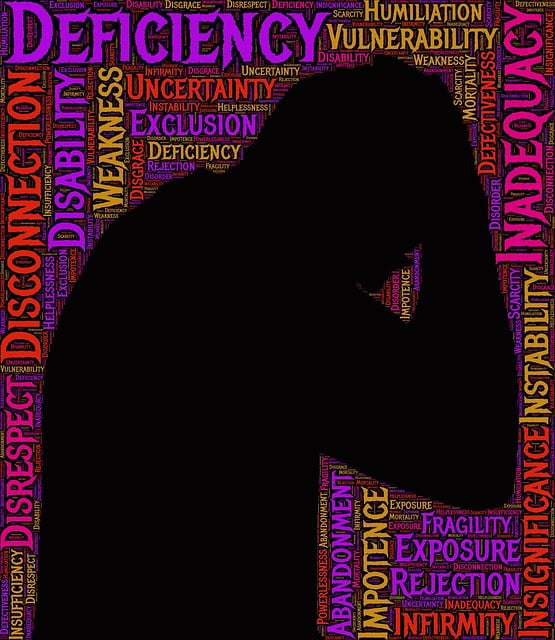Substance abuse among adolescents is a complex issue driven by peer pressure, mental health struggles, and family conflicts. Effective interventions require more than just substance treatment; they must address underlying mental health concerns through evidence-based therapy like Cognitive Behavioral Therapy (CBT) and mindfulness-based interventions. Tailored therapy for adolescent and teen substance abuse equips them with healthier coping mechanisms, reduces risks, and supports long-term recovery by tackling emotional regulation difficulties and unaddressed conflicts. These strategies empower teens to seek help, communicate openly, and break the cycle of addiction.
“Substance abuse among adolescents and teens is a growing concern, with potential long-lasting effects on their health and future prospects. This article explores comprehensive risk reduction strategies tailored to this vulnerable demographic. We delve into the root causes and risks associated with adolescent substance abuse, highlighting the significance of early intervention. Furthermore, it discusses effective therapy approaches, supportive measures, and long-term prevention strategies, emphasizing the vital role of professional support in guiding teens towards a healthier path. By understanding these strategies, parents, caregivers, and educators can better navigate the challenges and promote healing.”
- Understanding Adolescent and Teen Substance Abuse: Causes and Risks
- Therapy Approaches for Effective Risk Reduction
- Supportive Measures and Long-term Strategies for Prevention
Understanding Adolescent and Teen Substance Abuse: Causes and Risks

Substance abuse among adolescents and teenagers is a growing concern, with potential long-lasting effects on their physical and mental well-being. Understanding the underlying causes is crucial in developing effective risk reduction strategies. Several factors contribute to a teen’s inclination towards substance use, including peer pressure, anxiety relief, and an escape from emotional distress or family conflicts. According to research, early exposure to substances can alter brain development, making adolescents more susceptible to addiction later in life.
The complex nature of adolescent substance abuse requires tailored interventions. Therapy for adolescent and teen substance abuse often involves addressing underlying mental health issues, such as depression, anxiety, or trauma, through evidence-based practices. Conflict resolution techniques and mental illness stigma reduction efforts play a significant role in supporting teens, fostering healthier coping mechanisms, and encouraging open communication about their struggles.
Therapy Approaches for Effective Risk Reduction

For adolescents and teens struggling with substance abuse, tailored therapy approaches play a pivotal role in risk reduction strategies. Cognitive Behavioral Therapy (CBT) has proven to be an effective tool, focusing on identifying and changing negative thought patterns that contribute to drug use. This approach empowers young individuals to develop healthier coping mechanisms, enhance their decision-making skills, and understand the consequences of their actions. CBT also incorporates empathy-building strategies, fostering a supportive environment where teens can express their feelings and fears without judgment.
Complementing CBT, mindfulness-based interventions focus on teaching present-moment awareness and emotional regulation skills to manage anxiety relief and promote mental wellness. These therapies help individuals detach from harmful behaviors and develop a sense of inner strength. By combining these evidence-based therapy techniques, professionals can effectively guide adolescents towards healthier alternatives, reducing the risks associated with substance abuse and promoting long-term recovery.
Supportive Measures and Long-term Strategies for Prevention

Supporting young individuals through therapy for adolescent and teen substance abuse is a vital long-term strategy for prevention. This approach focuses on addressing underlying issues that may contribute to at-risk behaviors, such as poor emotional regulation or unresolved conflicts. By providing a safe space for expression, therapists help adolescents develop inner strength and coping mechanisms, enabling them to resist the allure of substances.
Incorporating conflict resolution techniques and emotional regulation strategies into therapeutic practices empowers teens with effective tools for managing stress, anger, or traumatic experiences. These measures not only reduce the likelihood of substance abuse but also foster healthier relationships and overall well-being. Over time, such interventions can significantly contribute to breaking the cycle of addiction and promoting a brighter future for young people.
Substance abuse among adolescents and teens is a complex issue, but with the right strategies, risks can be significantly reduced. By understanding the causes and implementing evidence-based therapy approaches, supportive measures, and long-term prevention plans, we can empower young individuals to make healthier choices. Customized therapy for adolescent and teen substance abuse plays a pivotal role in their recovery and well-being.














